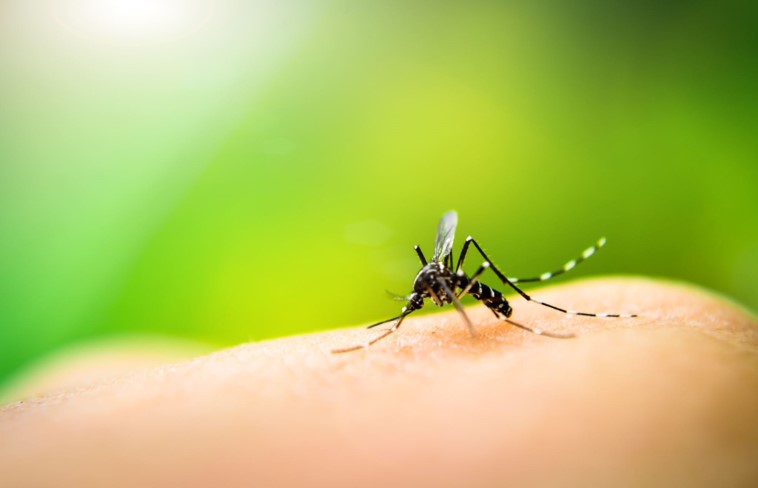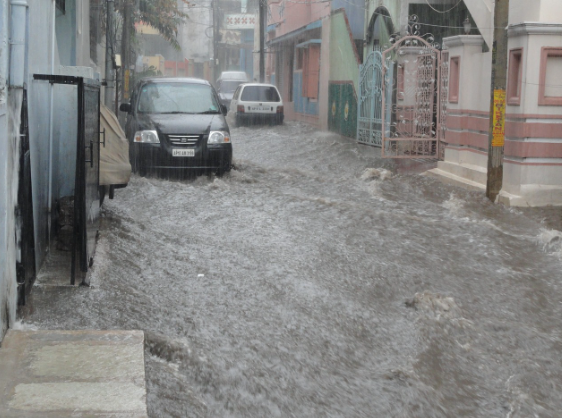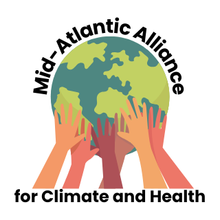
Climate Change: A Health Crisis Unfolding
Climate change has caused temperatures on this planet to increase 1.1 ℃ since the preindustrial times and this heating is causing effects on human physical health and mental health. Some people and populations are more at risk to climate change’s health effects than others. Vulnerability depends on one’s exposure to the climate hazard, the person’s current health condition, and the person’s ability to adapt to the climate exposure based on socioeconomic factors. Climate Change affects all people regardless of the socioeconomic status, but not all people are affected equally. Young children, older adults, people with chronic medical conditions, socially vulnerable populations, people with disabilities, and pregnant/postpartum women are at most risk.
Health Effects of Climate Change
Climate change is having a profound impact on human health through various mechanisms. Heat-related injuries are becoming more common as global temperatures rise. Vector-borne diseases are spreading to new areas as changing climates alter the habitats of disease-carrying insects. Air pollution from increasingly frequent wildfires poses significant respiratory risks. Extreme weather events like storms and floods are causing more injuries and disrupting healthcare delivery. Additionally, climate migration is forcing people to relocate, often to areas with limited healthcare resources. These combined factors are not only directly affecting human health but also threatening the stability and effectiveness of healthcare systems worldwide.
In summary, climate change is affecting health by:
- Causing an increase in heat-related, respiratory, and cardiovascular diseases
- Changing the pattern of infectious disease transmission
- Causing decreased air quality
- Causing injuries and premature deaths related to extreme weather
- Creating or increasing mental health impacts
For more information on Climate Change and Health:

Climate Change Causes an Increase in Heat-Related Illnesses
Exposure to extreme heat is associated with a range of health issues, including heatstroke, acute kidney injury, adverse pregnancy outcomes, and worsening of cardiovascular and respiratory diseases. Furthermore, extreme heat negatively impacts sleep quality and mental health. It can also reduce a person’s ability to work and exercise effectively. The effects of extreme heat are not uniform across populations. Those at higher risk include older adults, pregnant women, young children, socially disadvantaged individuals, and outdoor workers. These groups are particularly vulnerable to heat-related health problems.
For more information on Climate Change and Heat-Related Illnesses:
Climate Change Increases the Rate of Infectious Diseases

Climate change is altering the prevalence and spread of infectious diseases through vector-borne, food-borne, and water-borne transmission.
Vector-borne diseases are transmitted by fleas, ticks, and mosquitoes. A warming climate can increase the distribution and incidence of such diseases, including Lyme disease, Dengue fever, West Nile virus, and Rocky Mountain spotted fever.
Water-borne disease transmission is affected by changes in air temperature and precipitation patterns. Diarrheal diseases become more common at higher temperatures, as warmer waters create hospitable environments for dangerous algae and microbes. Climate change can also cause extreme precipitation and flooding, overwhelming septic and wastewater treatment systems. This contamination of drinking and recreational waters increases the risk of bacterial, parasitic, and other contaminant transmission. Moreover, flooded buildings can foster the growth of dangerous molds, which can cause illness when inhaled.

Climate Change Causes Decreased Air Quality
Climate change is affecting the air we breathe through increased air pollution and longer pollen seasons. Two main contributors to air pollution are ground-level ozone and particulate matter. Ground-level ozone pollution, commonly known as smog, is emitted from various sources including vehicles, power plants, refineries, chemical plants, lawn equipment, and landfills. Hotter weather and stagnant air exacerbate ground-level pollution. This pollution leads to more hospital admissions and emergency department visits for asthma exacerbations, as well as premature deaths.
Rising temperatures and droughts create conditions conducive to wildfires, increasing the likelihood of particulate matter pollution (PMP). The health risk from PMP depends on the size of the inhaled particles. These particles can be absorbed into the lungs and bloodstream, causing cardiac and respiratory issues. Cardiovascular effects may include cardiac arrhythmias and heart attacks, while respiratory effects include asthma exacerbations and bronchitis. PMP results in increased emergency department visits, hospital admissions, and absences from school or work. Alarmingly, smoke from record-breaking wildfires is undoing decades of progress achieved by the Clean Air Act.
For more information on Climate Change and Decreased Air Quality:
Climate Change Causes Injuries and Premature Deaths

Extreme weather events such as wildfires, droughts, severe storms, and flooding, all exacerbated by climate change, pose significant health risks, leading to injuries and premature deaths. These adverse health outcomes can result from both the direct impact of weather disasters and the indirect consequences of the conditions they create.
Injuries and premature deaths from extreme weather can occur due to:
- Contaminated drinking water
- Disrupted communication and power outages, hampering utility and healthcare services
- Damaged infrastructure impeding emergency transportation and delaying care
- Increased transmission of food and waterborne illnesses due to power failures
- Carbon monoxide poisoning from misuse of portable generators and heaters
- Worsening mental health conditions, including depression and PTSD
- Complications during evacuations of medically vulnerable individuals, particularly in accessing necessary medications, medical equipment, and recordsications, medical equipment, and/or medical records.
For more information on Climate Change and Injuries and Premature Deaths:
